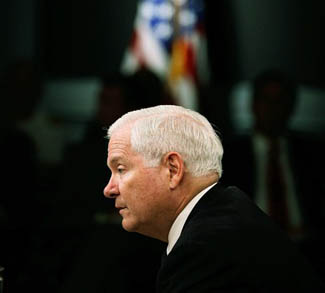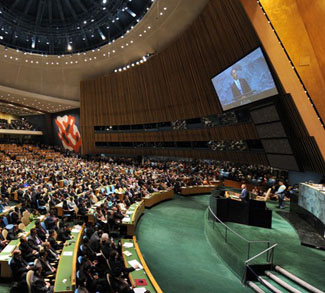French President Emmanuel Macron recently wrapped up a state visit to China alongside European Commission President Ursula von der Leyen to discuss EU-China relations and China’s role in the war in Ukraine. The trip offered notable insights into how Macron sees the EU as a geopolitical actor in a renewed age of great power competition between Washington and Beijing. Notably, his trip also came after Taiwanese President Tsai Ing-Wen travelled to Central America and California to meet with US House Speaker Kevin McCarthy and a bipartisan Congressional delegation. After Macron left China, three days of live-fire military exercises began, signalling the rising tensions across the Taiwan Strait that are only set to increase in the years ahead.
While von der Leyen has recently made more assertive remarks towards China, Macron has been eager to strike a more conciliatory tone. In an interview with Politico Europe, Macron advanced his long-held belief in strategic autonomy and spoke of the need for Europe not to be ‘America’s followers,’ blindly walking into crises not of its own making. For Macron, this includes Taiwan, an issue he believes is not in Europe’s core security interests and which has fallen victim to a hostile US agenda towards China that only increases the risk of miscalculation and overreaction. In response to Macron’s remarks, leading House Republicans criticized Macron’s ‘betrayal’ of Taiwan, with Rep. Mike Gallagher, chair of the House Select Committee on China, going so far as to call his comments ‘embarrassing, disgraceful, and very geopolitically naïve.’ Washington and Paris have clashed on sensitive geopolitical issues previously, most notably over the 2003 invasion of Iraq. From Washington’s perspective, strategic autonomy further weakens, rather than strengthens the EU’s resolve when it comes to tackling China, causing unnecessary strains in the Western alliance.
France has always sought a degree of independence from Washington and power structures like NATO that it deems to be unduly influenced by American as opposed to European strategic interests. However, there is a long distance between embracing strategic autonomy and building the EU into a ‘third superpower’ in the words of Macron. France has little power to project in the Indo-Pacific and Washington is rapidly building and enhancing its partnerships with states like the Philippines, recently hosting its largest-ever joint military exercises with Manila. Washington remains the power broker, but France is far from a spoiler to its ambitions in the region. Likewise, Paris is not ‘committed to abandoning democratic nations in favor of a brutal communist regime’ as Rep. Chris Smith, chair of the Congressional Executive Commission on China suggested. It is important for Washington and Paris to maintain their close political and security ties, and US politicians should be fortunate that Macron is in power and not one of his rivals on the far-left or far-right who would be even more hostile towards the US and NATO.
For France and many other EU states, China is not yet the economic and military bogeyman that it has become in the US. China is certainly perceived to be a threat and a geostrategic competitor, but support for Taiwan is not yet worth risking the seeds of a fruitful economic relationship. In a similar vein as the conflict in Ukraine has revealed, it is arguably Europe’s smaller frontline states like Lithuania who are more likely to find common cause with Taiwan in supporting its fight against the aggressive and irredentist tendencies of its much larger neighbor. For France and Germany, the China relationship is largely about economics, whereas for Lithuania, it is about security, and the principles of international order over the desire to pursue economic opportunities at all costs. Strategic autonomy thus requires the successful combination of power and principles, something France and Germany are more tainted by due to many years of courting or even appeasing Russia without weighing the full security costs to their neighbors in Europe. The paradox is that the fight for strategic autonomy arguably lies not with the EU’s oldest and most powerful member states like France, but with its newest and more vulnerable member states like the Baltic nations where history is an ever-present compass to the current crises.
In boosting their defense spending and proposing the European Defence Agency’s common ammunition procurement scheme, the Baltic states are taking tangible steps towards strategic autonomy while simultaneously strengthening their ties with the US and other NATO allies. States like Poland, Czechia, and the Baltic nations believe an American presence in Europe is essential and should not replace the need for them to also increase their own defense spending so that they can be more effective partners in the transatlantic alliance. This is the ideal duality of strategic autonomy, pooling military resources independent of Washington but joining Washington in standing up to both Russian and Chinese aggression.
In dealing with China and working to make the EU a ‘third superpower,’ Macron sees Europe as having an inherited tradition in shaping the global order and exerting influence on its own terms. Macron does not wish the EU to become a pawn in the great power competition between the US and China, and that is an admirable and entirely justifiable position for an economic bloc of its size. However, the war in Ukraine has revealed a degree of moral frailty in the bloc’s larger member states like France which stands in contrast to the strategic certitude present in smaller member states like Estonia and Lithuania. For France to effectively lead on strategic autonomy, all of Europe must be allowed to participate, with no more room for the marginalization of the EU’s frontline states. Strategic autonomy also means recognizing that France, despite its long history, does not speak for the entire EU, something the Baltic states and Poland often stress. Grandeur is no substitute for foresight, and only by tapping into the vast array of Europe’s historical memories can strategic autonomy serve both the EU’s principles and its drive for power as a formidable geopolitical actor.
The views expressed in this article belong to the authors alone and do not necessarily reflect those of Geopoliticalmonitor.com.




